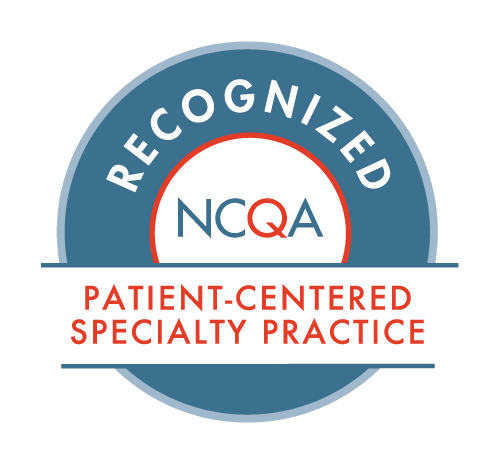Cardiomyopathy
Cardiomyopathy is a disease that affects your heart’s muscle and makes it harder for your heart to pump blood. When this happens, your body does not get the oxygen and nutrients it needs to stay healthy. Over time, cardiomyopathy can lead to heart failure, irregular heart rhythms, or even sudden cardiac arrest. Around 1 in 500 people have hypertrophic cardiomyopathy, and dilated cardiomyopathy is the third most common cause of heart failure in the U.S.
Types of Cardiomyopathy
There are a few main types of cardiomyopathy, and each one affects the heart a little differently.
- Arrhythmogenic right ventricular cardiomyopathy: A genetic condition where the right side of the heart muscle is replaced by scar or fatty tissue, leading to dangerous rhythm problems.
- Dilated cardiomyopathy: Causes the heart’s main pumping chamber to get bigger and weaker. It is most common in people between 40 and 59, but it can happen at any age.
- Hypertrophic cardiomyopathy: Makes the heart muscle thicker, which can block blood flow. It is often passed down through families and can lead to sudden cardiac death, especially in young athletes.
- Restrictive cardiomyopathy: Makes the heart muscle stiff, so it cannot fill with blood properly. This type is rare and usually affects older adults.
- Transthyretin amyloid cardiomyopathy: Happens when certain proteins build up in the heart, making it stiff and weak.
Symptoms and Causes
This condition might not cause symptoms early on. When symptoms do show up, they can include:
- Shortness of breath (even when resting)
- Swelling in your legs or belly
- Chest pain
- A fast or pounding heartbeat
- Feeling dizzy
- Fainting
The causes of cardiomyopathy vary. Some people inherit it through genetic changes. Others develop it because of long-term high blood pressure, heart attacks, diabetes, obesity, or viral infections.
Drinking too much alcohol, using certain drugs, or having certain autoimmune diseases can also damage the heart muscle. Sometimes, doctors cannot find a clear cause.
Risk Factors
Your risk for cardiomyopathy can rise if you have a family history of heart problems, especially if a close relative had sudden cardiac arrest or heart failure. Other risks include:
- Uncontrolled high blood pressure
- Diabetes
- Obesity (especially if your BMI is over 30)
- Heavy alcohol or drug use
- Previous cancer treatments like chemotherapy
Emotional stress, certain infections, and pregnancy complications can also increase your risk.
Diagnosis
Diagnosing cardiomyopathy starts with talking about your medical and family history and doing a physical exam. Your cardiologist may order several tests to check your heart’s structure and function.
These can include:
- Echocardiogram (an ultrasound of the heart)
- Electrocardiogram (ECG)
- Cardiac MRI
- Chest X-ray
- Blood tests like BNP levels to check for heart failure
Some people might also need a heart catheterization or a small tissue biopsy if doctors need more information.
Management and Treatment
While cardiomyopathy cannot always be cured, there are many ways to help you feel better and protect your heart. Lifestyle changes play a significant role in treatment. The following can make a big difference:
- Eating a heart-healthy, low-sodium diet
- Staying active (as safely recommended)
- Quitting smoking
- Avoiding alcohol
Medications play an important role, too. You might take beta blockers to slow your heart rate, ACE inhibitors or ARBs to lower blood pressure and reduce strain on your heart, diuretics to help with swelling, or blood thinners to prevent clots. Some people also take newer medications like angiotensin receptor-neprilysin inhibitors.
For some, devices such as pacemakers or implantable cardioverter-defibrillators (ICDs) can keep dangerous rhythms under control. Advanced cases may need a left ventricular assist device (LVAD) to help the heart pump or even a heart transplant if other treatments stop working.
Living With Cardiomyopathy
Living with cardiomyopathy means learning to listen to your body and staying on top of your care plan. Some people can live many years without major problems, while others may see their symptoms get worse more quickly.
Key parts of managing the disease include:
- Regular follow-up visits
- Taking your medications exactly as prescribed
- Watching for new symptoms
If cardiomyopathy runs in your family, your cardiologist might suggest screening for your close relatives. This helps catch the disease early, even before symptoms start.
Reach Out for Expert Cardiovascular Support
If you are experiencing symptoms like shortness of breath, swelling, or fainting, or if you have a family history of heart disease, don’t wait. Visit one of our locations in Flemington, Bridgewater, and Clinton, New Jersey. Contact our cardiovascular practice today to schedule an appointment. Our team at Hunterdon Cardiovascular Associates is here to support you with personalized care, advanced treatments, and the guidance you need to take charge of your heart health.



